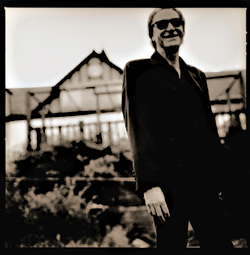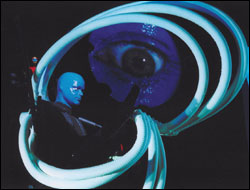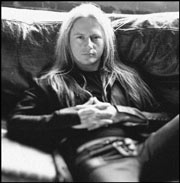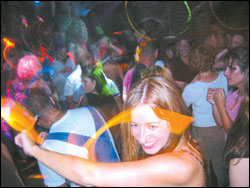Unless your main source of music is a classic-rock radio station, the only place you’re likely to experience the music of the Kinks these days is in television commercials. “You Really Got Me,” “All Day and All of the Night,” and particularly “Picture Book,” from the Hewlett-Packard changing-faces ads, are nearly omnipresent.
The man behind the Kinks is Ray Davies. He founded the band in 1963 (then called The Ravens), wrote the songs, sang the leads, and created a literate, funny, particularly hard-rocking Brit band. All told, the Kinks are considered by some to be the “first indie band,” which Davies says he prefers over “the originators of heavy metal.” While the band’s earliest hits are among the most bracing in rock music, there has always been a softer, neo-Victorian side that resulted in beautiful gems like “Sunny Afternoon” and “Waterloo Sunset.”
Davies calls himself a storyteller, partially based on a workshop he did in New York six years ago, which incidentally became a series on VH1. He usually writes about others rather than himself, and his first solo effort, 10 years in the making, is the aptly titled Other People’s Lives. Davies alludes in the extensive liner notes to some autobiography, but he also claims the characters come from observation. He does admit the opening lines of the first track ring true on a number of personal levels. “Things are gonna change,” he sings, “this is the morning after.” Davies says the hangover has as much to do with his life and career as it does the beers. Most of the album is both observational and reflective, particularly “Next-Door Neighbour,” “The Tourist,” and the particularly wry “Is There Life After Breakfast.”
Davies is speaking from his home in North London. The interview is actually a conference call with a dozen American writers. It would be fair to say that most everyone wants to ask Davies what it was like getting shot. (In 2003, while living in New Orleans, Davies took a bullet to the leg from a purse snatcher.) Surprisingly, we all (barely) restrain ourselves until Davies himself brings it up.
“It was classic movie material,” Davies recalls. “I chased him across the street [where] his getaway car pulled up. He took the classic shot—two hands on the gun, crouched slightly, got his aim together, and shot—and I ducked. I saw the flash come out, and it was just like a movie, but it really did hurt. Anyone who has been shot will know it’s just the absolute coldness that goes through your body. It just looked like a dot in my leg, but actually my leg was smashed, and I still wonder—something that worries me—where are my pants that I was wearing? Everything that I was wearing disappeared, and I remember they were cussing at my trousers to get to the wound. I said, ‘These are new pants,’ and [they] said, ‘Sir, we don’t give a shit.’ But I’m alive, and I feel good.”
It took three years to get well enough to finish the album and hit the road, but Davies does have a backing band, and yes, they will be doing Kinks numbers.
With the Kinks, Davies has played Seattle many times over the years, and memorable shows abound. One particular standout was in the early ’90s with the Blasters as opening act. It was notable not only for the music—the band’s back catalog was by then fantastic—but also for Davies’ music hall attire. With his wardrobe presumably designed by a kilt maker, the audience lost count of just how many plaid suits Davies changed into during the set.
But for Davies himself, the 1980 show might be the most memorable.
“Yes, it’s true,” he recalls. “A fan fell out of the ceiling trying to sneak in. I’d love to say it was while we were playing “(Wish I Could Fly Like) Superman,” but I don’t think it was. It happened at the arena. I saw the body land. He was OK. He walked away. A few people got their arms broken or something.”
It was just one occurrence in a day of traumas. In the morning, Davies had been arrested in the Vancouver, B.C., airport on a case of mistaken identity.
“A Mountie came up and said, ‘Are you Ray Davies,’ and I said, ‘Yes,’ and he handcuffed me. My manager went mad; they finally figured out it was somebody using my name. [Then] I got to the show, and somebody fell through the ceiling. It was awful. Then I went to the Hurricane Diner, where I used to hang out, and I had the rudest waitress in the world!” Davies pauses for moment and then asks, “Is it still there? I hope so. It was a good grilled cheese.”








